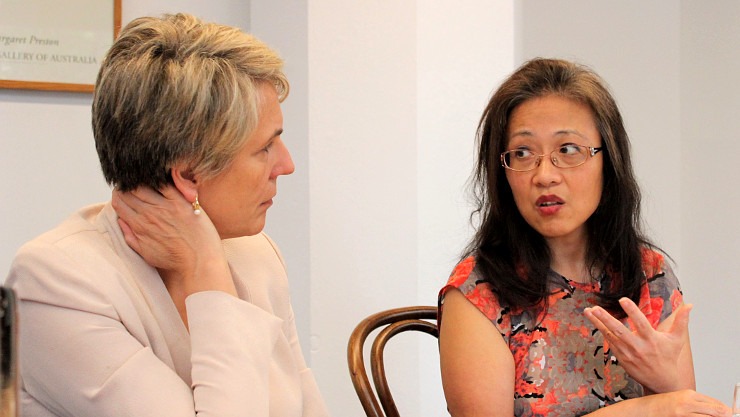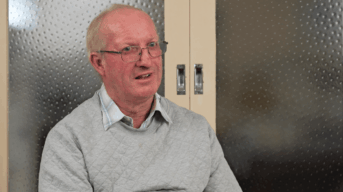
Federal election – it’s over to you!
On Saturday, people with intellectual disability, their families and other supporters will vote in the Federal Election. To help voters make an informed choice, we have gathered information on commitments by the main parties.
Issues we have highlighted as needing Federal Government action
Over the last three years, Council for Intellectual Disability (CID) has highlighted issues including:
- The health inequalities facing people with intellectual disability and our priority actions recommended to address these. See the Our health counts campaign.
- Improvements needed to the NDIS.
- The NDIS to improve its processes that have not worked nearly well enough for people with intellectual disability. There has been some progress here including the development of new participant pathways, but there remains a long way to go.
- The NDIS to have a much stronger outreach and engagement strategy with people living isolated lives on society’s fringe. There has been little progress here.
- The NDIS to have a much more skilled response to people with complex support needs including a clear provider of last resort system. A complex needs pathway is currently being piloted.
- A better distinction between the responsibilities of the NDIS and state agencies such as health, justice and children services. There has been some progress here, notably the NDIS accepting responsibility for swallowing therapy, but many issues are still outstanding.
- The need for a Royal Commission on the abuse and neglect experienced by people with disability. We are delighted that the Royal Commission has been established but very concerned by the conflicts of interest facing two of the Commissioners.
- Initiatives on employment of people with disability to specifically include people with intellectual disability. For example, 14 percent of NDIA employees have disability but very few have intellectual disability.
Looking to the future, we have summarised new commitments made by the main parties. Below you can read these to help you think about who you want to vote for. The Greens have also produced an Easy Read version of their commitments.
Election commitments to people with intellectual disability
Commitments on health – response to the Our Health Counts campaign
CID and Inclusion Australia have campaigned for big improvements in the health care received by people with intellectual disability.
We asked parties to commit to a $50 million three-year plan:
- Intellectual disability health workers in each of the 31 Primary Health Networks around Australia to improve GP and other primary health services for people with intellectual disability.
- Development and piloting of a curriculum enhancement in medical and nursing schools.
- An independent expert enquiry to provide a framework for further action.
The Liberal National Coalition has committed to a roundtable discussion to explore our proposals and inform consideration of future action.
The Labor Party has committed $9.5 million to:
- Pilot and evaluate intellectual disability health workers in four Primary Health Networks.
- Develop, trial and evaluate a toolkit on intellectual disability healthcare for medical and nursing schools.
The Greens have committed to our full $50 million proposal.
The Royal Commission into abuse and neglect of people with disability can also include a focus on abuse and neglect in the health system.
Commitments on the NDIS
The Liberal and National Parties Plan to Support People with Disability says that a re-elected Morrison Government will:
- Continue to ensure the NDIS is fully funded.
- Rollout new NDIS participant planning pathways – making sure people with disability have a single point of contact with the NDIS, and can choose to be on a longer NDIS plan of up to 3 years if “their disability is stable”.
- Expand the NDIS community connectors program to support and assist hard to reach communities – including Indigenous Australians, culturally and linguistically diverse communities and ageing parents of children with disability – to navigate the NDIS and get the services they or their children need. Community connectors would assist people to get evidence of their eligibility for the NDIS, assist with the development of culturally appropriate plans and help link participants with providers.
- Introduce a new NDIS Participant Service Guarantee – setting new standards for shorter timeframes for people with disability to get an NDIS plan and to have their plan reviewed.
- Commit $45 million to develop a national disability information gateway, including a website and 1800 number, to assist all people with disability and their families to locate and access services in their communities. The gateway would be a “one-stop shop” with a national call centre.
- Provide $2 million to support people with autism to find and keep a job.
Labor’s Plan to fix the NDIS promises:
- A new culture that puts people with disability first, including people having consistent contacts in the NDIA.
- Establishing an NDIS Future Fund that will hold NDIS underspends, starting with $1.6billion in 2019-20.
- More, better-trained staff – Labor says it will lift the NDIA staffing cap and free up Local Area Coordinators to undertake community capacity building and engagement rather than completing plans and plan reviews.
- Better planning, more help with plan implementation, more flexibility in plans and multi-year plans.
- Key performance indicators for the NDIA about timely processes for access, planning and plan reviews.
- Ensuring equitable access to the NDIS, including
- The NDIA finding and engaging with people “who are slipping through the cracks” and partnering with local services and advocates “to earn people’s trust and bring all eligible Australians into the scheme”.
- An independent review of NDIS equity for groups including people with intellectual disability, people with complex health needs, people in the justice system and vulnerable and marginalised people.
- Fixing the gaps between the NDIS and mainstream services – a new National Disability Strategy and “robust provider of last resort arrangements” for people leaving hospital or prison and people with complex needs.
- An NDIS workforce strategy.
- Improving research and evaluation.
The Greens have committed to an easily accessed, adequately funded and staffed NDIS including:
- Removing the staffing cap.
- Improved IT systems and interfaces for participants and service providers.
Commitments on schools
- Developing a national inclusive education strategy.
- Providing an additional $300m over three years for support of students with disability.
- Developing new standards for teacher education and learning support staff.
The Greens have committed to inclusive education including national standards for inclusive education training and upskilling for teachers.
Commitments on other issues
The Liberal and National Parties have promised a 7 percent employment target for people with disability across the Australian Public Service by 2025.
Labor has promised:
- A 6 percent disability employment target in the public service by 2022.
- To review the appointments of Royal Commissioners who have conflicts of interest.
- Supports for carers including improved Centrelink rules and processes.
- To double the funding for disability representative organisations.
The Greens have committed to An Accessible Australia including:
- A 15 percent target for employment of people with disability in the public service by 2022.
- $1.4b for better access to public transport, events, shops and other public spaces.
- 500,000 new, accessible public and community housing properties.
- Increased funding of disability advocacy.



 1800 424 065
1800 424 065 














